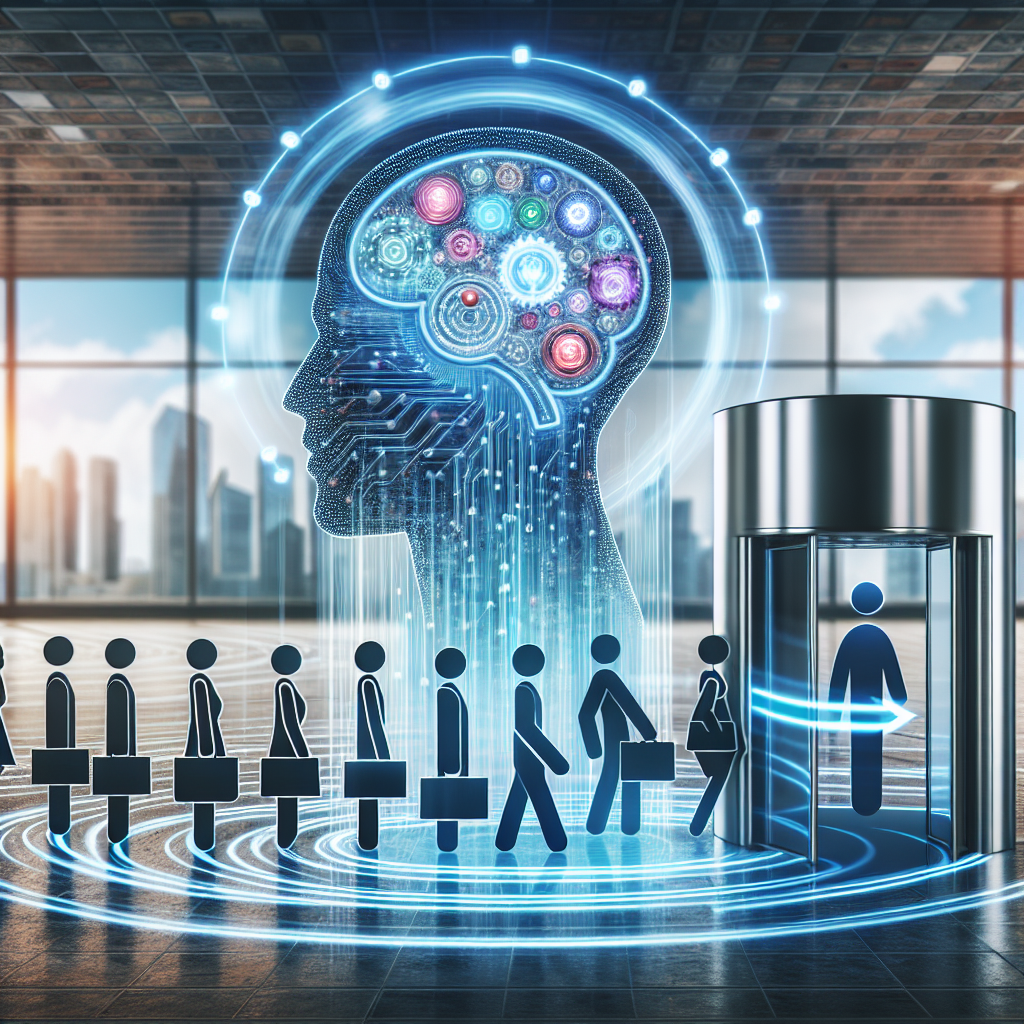AI in Human Resources: Streamlining Recruitment Processes
Artificial Intelligence (AI) has revolutionized many industries in recent years, and Human Resources is no exception. The use of AI in HR has enabled organizations to streamline their recruitment processes, saving time and resources while also improving the quality of hires. In this article, we will explore how AI is transforming the recruitment landscape and the benefits it offers to both employers and job seekers.
AI in Recruitment: How Does it Work?
AI technology in recruitment involves the use of algorithms and machine learning to automate and optimize various aspects of the hiring process. This includes sourcing candidates, screening resumes, conducting assessments, scheduling interviews, and even predicting candidate success based on data analysis. AI-powered tools can analyze large volumes of data at a much faster rate than humans, allowing recruiters to make more informed decisions in a shorter amount of time.
One of the key ways AI is used in recruitment is through the use of applicant tracking systems (ATS). These systems can automatically scan resumes for keywords, match candidates to job requirements, and rank applicants based on their qualifications. This helps recruiters quickly identify the most suitable candidates for a particular role and reduces the time spent on manual resume screening.
AI is also being used to improve the candidate experience. Chatbots and virtual assistants can engage with candidates, answer their questions, and provide updates on their application status. This personalized approach helps to keep candidates informed and engaged throughout the hiring process, leading to a more positive overall experience.
Benefits of AI in Recruitment
There are several benefits to using AI in recruitment, both for employers and job seekers. Some of the key advantages include:
1. Time and Cost Savings: AI-powered tools can automate time-consuming tasks such as resume screening and interview scheduling, allowing recruiters to focus on more strategic aspects of the hiring process. This not only saves time but also reduces the cost of recruitment by making the process more efficient.
2. Improved Candidate Quality: By using AI to match candidates to job requirements and predict success based on data analysis, recruiters can identify the most qualified candidates for a role. This leads to better hires and reduces the risk of turnover.
3. Enhanced Candidate Experience: AI-powered chatbots and virtual assistants can provide candidates with instant feedback and support throughout the hiring process. This improves communication and engagement, leading to a more positive candidate experience.
4. Diversity and Inclusion: AI can help to reduce bias in the recruitment process by focusing on candidate qualifications and skills rather than factors such as gender, race, or age. This can result in a more diverse and inclusive workforce.
5. Data-Driven Decision Making: AI tools can analyze large volumes of data to identify trends and patterns in recruitment, helping organizations make more informed decisions about their hiring strategies. This can lead to better outcomes and a more strategic approach to talent acquisition.
FAQs
Q: Can AI completely replace human recruiters?
A: While AI can automate many aspects of the recruitment process, human recruiters still play a crucial role in assessing candidates for cultural fit, soft skills, and other qualities that are difficult to quantify. AI is best used as a tool to support recruiters, rather than replace them entirely.
Q: How can AI help to reduce bias in recruitment?
A: AI can help to reduce bias by focusing on objective criteria such as qualifications and skills when evaluating candidates. By removing subjective factors from the decision-making process, AI can help to create a more fair and inclusive recruitment process.
Q: Are there any ethical concerns with using AI in recruitment?
A: There are ethical concerns related to privacy, data security, and bias in AI-powered recruitment tools. It is important for organizations to be transparent about how AI is being used in their recruitment processes and to ensure that they are following best practices to protect candidate data and minimize bias.
Q: What are some of the challenges of implementing AI in recruitment?
A: Some of the challenges of implementing AI in recruitment include the cost of investment, the need for training and upskilling of staff, and the potential resistance to change from employees. It is important for organizations to carefully plan and manage the implementation of AI to maximize its benefits.
In conclusion, AI is transforming the recruitment process by streamlining processes, improving candidate quality, and enhancing the overall candidate experience. By leveraging AI-powered tools, organizations can make more informed decisions, save time and resources, and create a more efficient and effective hiring process. As AI continues to evolve, it will play an increasingly important role in shaping the future of HR and talent acquisition.

